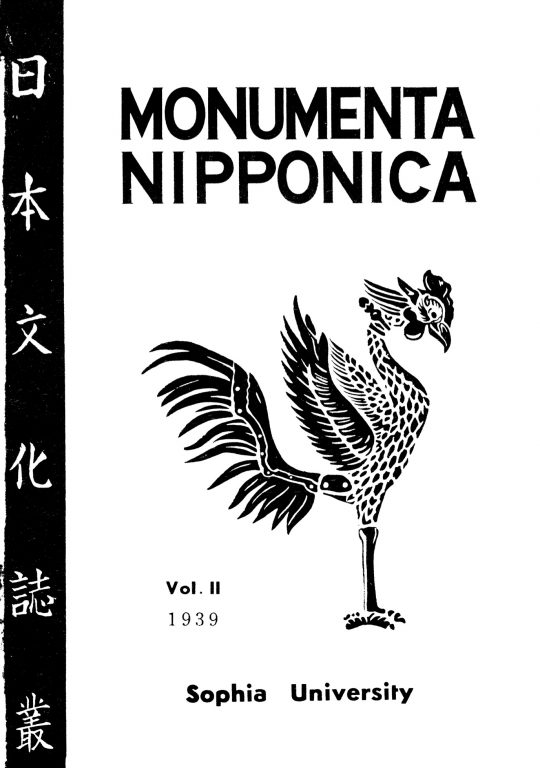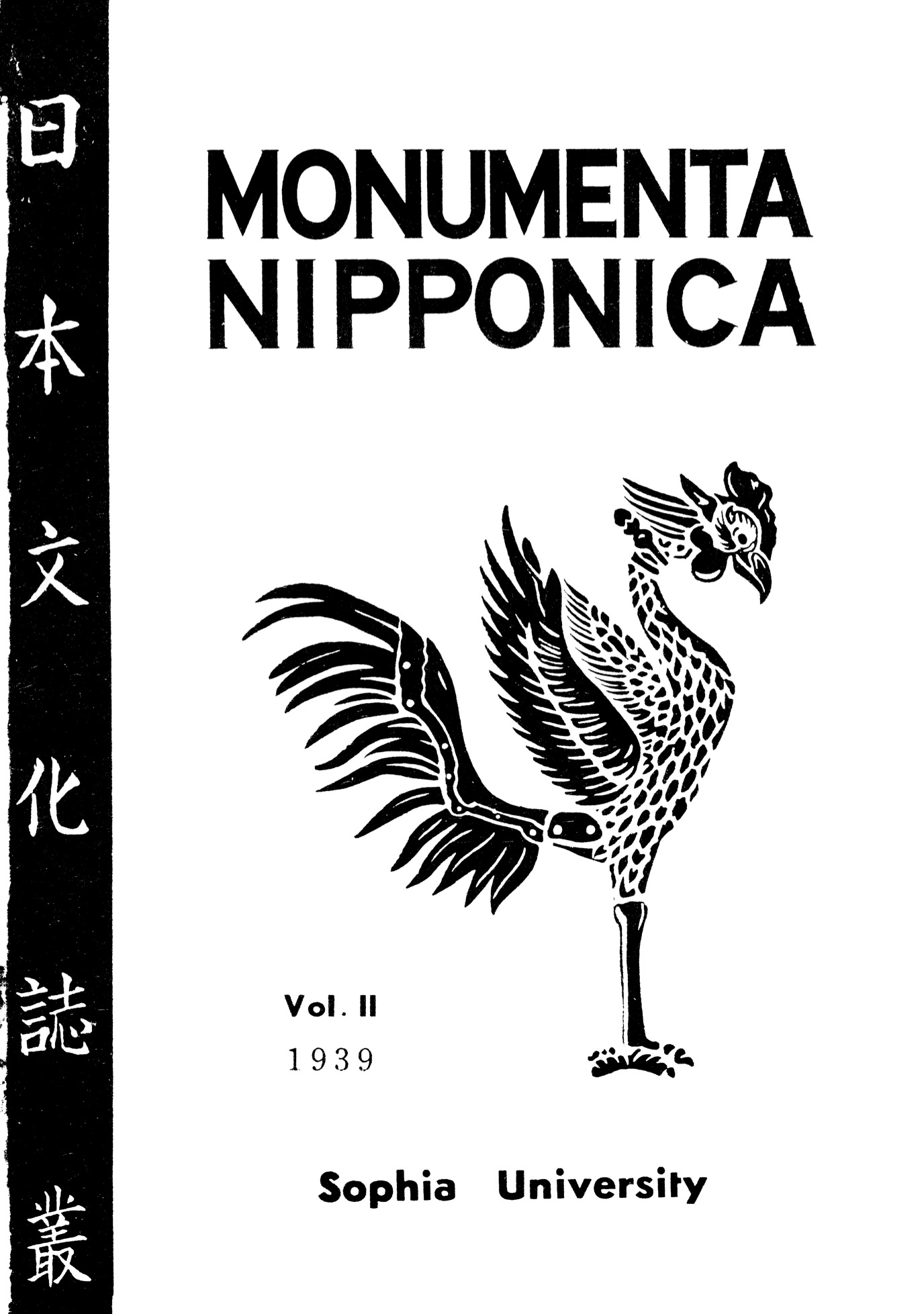The Japanese verbal forms on -yuJ. L. Pierson
MN 2:1 (1939) pp. 24–39
In our times people live much more with their Gods and saints than is generally accepted. Many kings and statesmen are guided by ‘God’s Word’; many never take a decision before they have received a ‘Token of their God’. How much more so in ancient times, where lightning and thunder, the ever returning sequence of day and night, the seasons, sun and moon-eclipses, floods and draughts etc., were the acts of Gods, chastising, smiting or rewarding the sinful human beings, who lived in everlasting awe for their omnipresence and omnipotence. Is it then improbable or even impossible, that these thoughts were manifested in their deeds and speech? I think it is reasonable if not essential, to search for such indications and men like Uhlenbeck and others were nearly forced to accept a hidden power or higher agent to be able to explain certain puzzling phenomena in the language of primitive people. On examining the Japanese verbal forms on -yu, we will perhaps be able to establish a new link in the chain of human thought, conscious of omnipresent and omnipotent Gods and spirits, up to the point where this consciousness fades away and with it the manifestation of the ‘higher-agent’ conception, leaving the human being as direct and sole agent.

